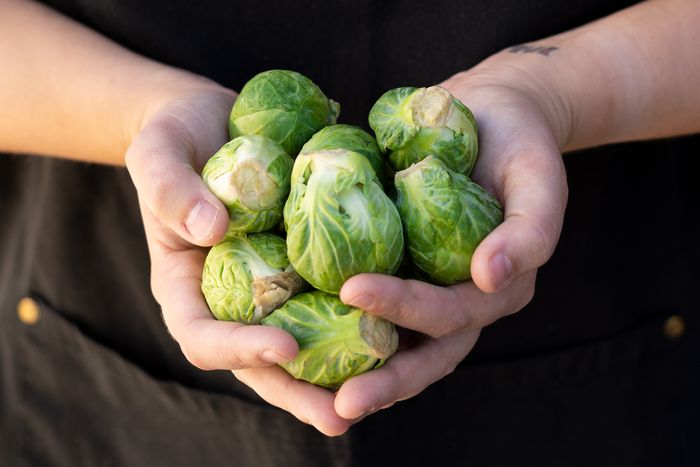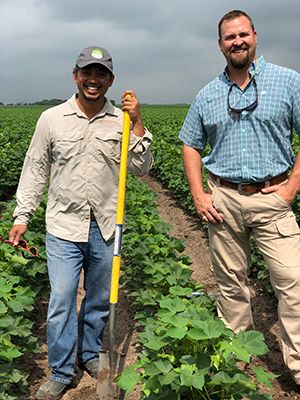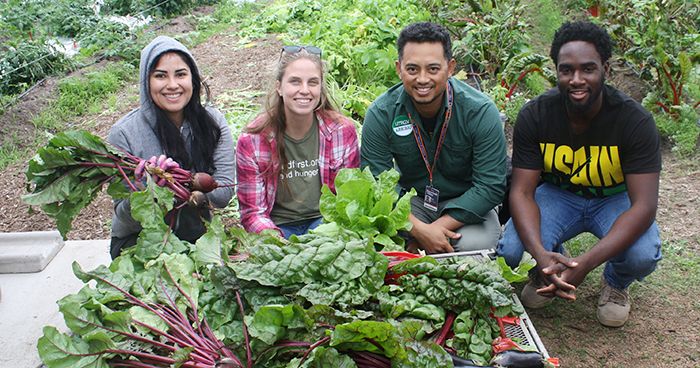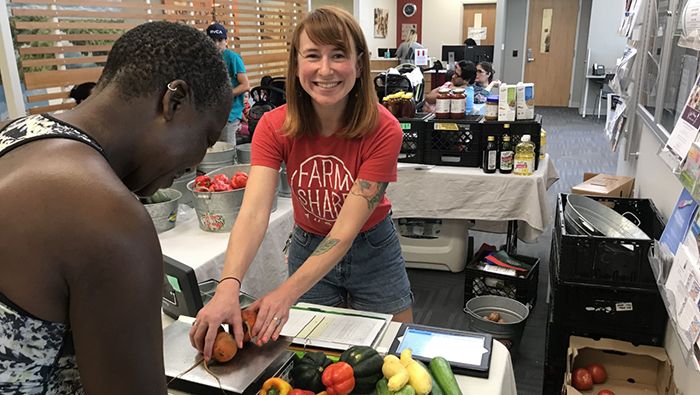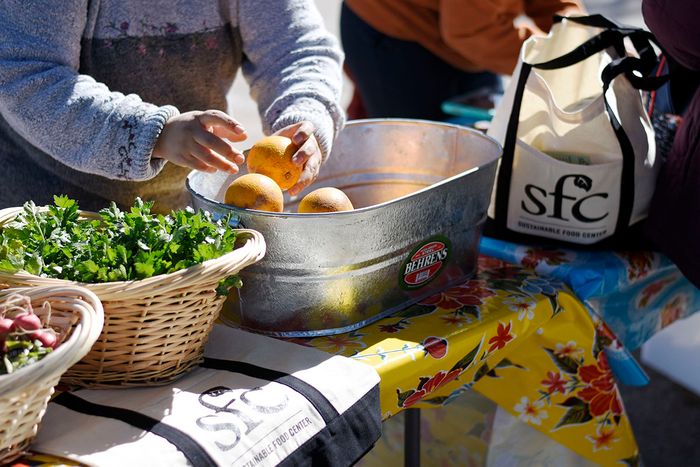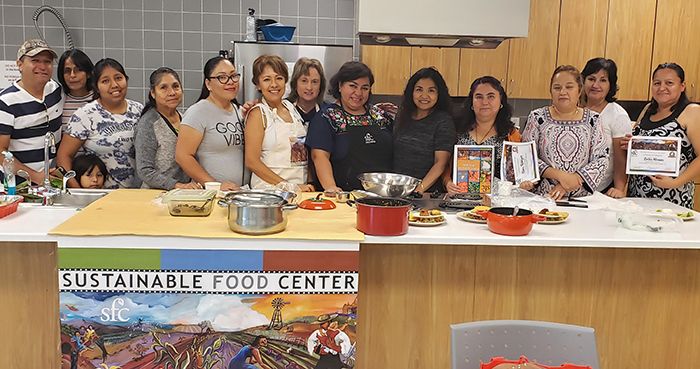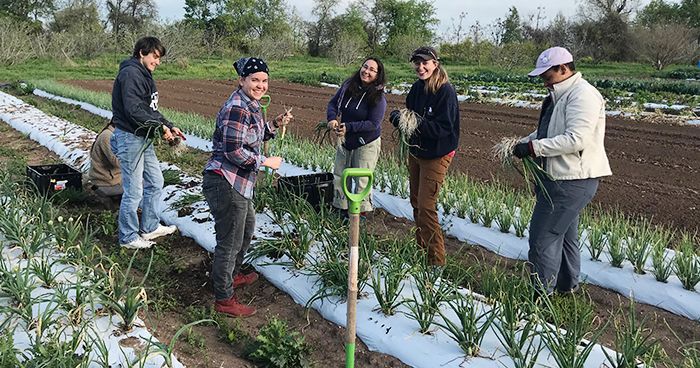Selene M. Dominguez con Ponce does a little bit of everything – she works for a tax preparer, runs a small food business, and on top of all that she is a facilitator with The Happy Kitchen/La Cocina Alegre®.
After Selene took her first THK class, she loved it so much that it became her dream to teach the classes herself. As a facilitator, she goes out to community centers, churches, and clinics to teach cooking classes to community members. She teaches class participants how to make healthy recipes, use products from the farmers’ market, read food labels, and make recipe substitutions with familiar ingredients.
Knowledge (and money) is power
Without a doubt, Selene feels that the biggest barrier to accessing healthy food is money. Selene moved to the United States 18 years ago from Mexico. She said that the food she grew up eating is delicious and healthy - if you have access to quality ingredients. Unfortunately, it’s just not always easy or affordable to access these ingredients. People end up spending their money on more affordable food options and often experience health disparities as a result.
She believes another barrier people face is a lack of knowledge. She wants everyone to know that - that learning about ingredients, utilizing information on the internet, and taking cooking classes can ultimately benefit your family in the future. She also believes that people need to experience good, healthy food firsthand. Talking about food is one thing, but it’s when people come to THK classes and get the experience of cooking and tasting it that they truly appreciate it’s value.
Selene utilizes Whatsapp to spread the message about her work. She shares information about cooking classes to more than 800 of her contacts, ranging from school groups to church groups to immigrant community chats. She is a part of SFC’s Spanish Facebook group Come fresco y sano en Austin, a group dedicated to recipe and idea-sharing with more than 1,000 local members.
Selene feels it’s her purpose to share cooking and nutrition with her community. “I want to share that you have the option to get a better life through eating well. It’s the key. Start eating well, thinking well – everything starts with that”.

